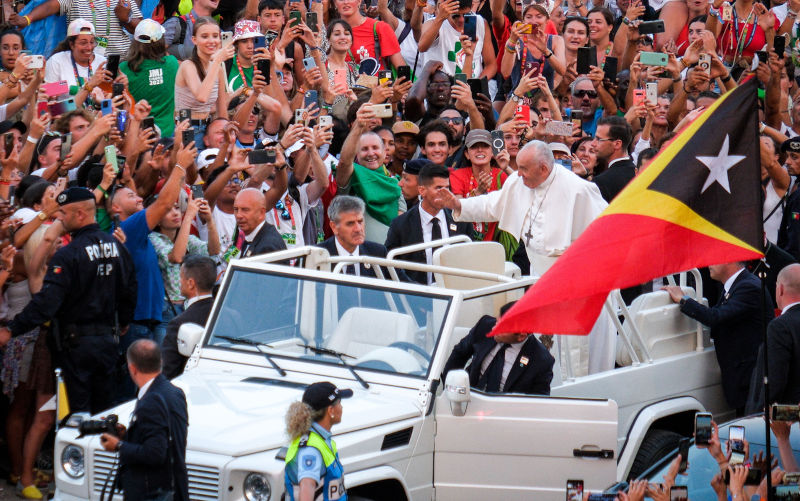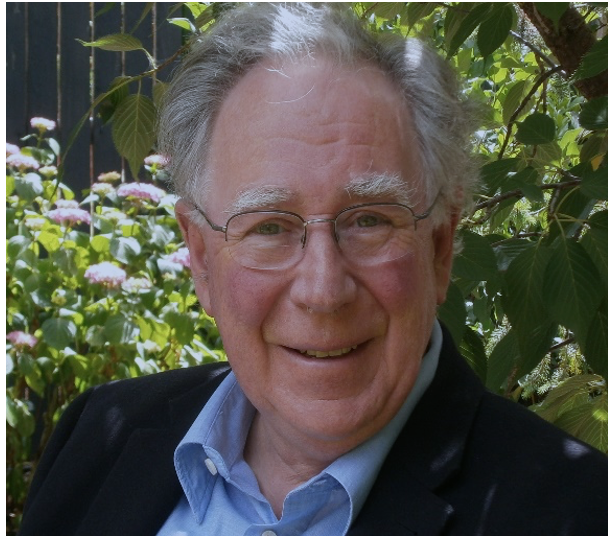Climate disaster: Pope Francis repudiates developed worlds economics and culture
October 7, 2023
It is no longer possible to doubt the human origin of climate change (Pope Francis).
Popes in the past usually quoted ancient theologians, or themselves, as footnote authorities in official documents. So, you know somethings changed when a popes footnotes quote the IPCC, the National Oceanic and Atmospheric Administration, or the UN Climate Change 2023 Synthesis Report. This is precisely what Pope Francis has done in his October 4, 2023 Apostolic Letter Laudate Deum (Praise God), addressed to All people of good will on the climate crisis.
Francis, of course, has form on the environment. His encyclical letter Laudato si (May 2015) is probably the most radical document ever issued by a pope. Its revolutionary because its much more than a theological, moral and spiritual reflection on ecological issues because it challenges the whole structure of life, culture and morality in the contemporary world.
It was, as conservative New York Times columnist, Ross Douthat said in June 2015, a complete repudiation of the whole technological paradigm of our civilisation, and of much of the developed worlds economics and culture.
Clearly Francis patience has worn thin since then, especially with global warming deniers and those who think there are technocratic solutions to everything. Tackling climate skeptics who have chosen to deride (paragraph 6) the facts of climate change, he insists that its no longer possible to doubt the human anthropic origin of climate change, backing-up that claim with strong scientific evidence (11-14). He emphasises the science, he says, because of certain dismissive and scarcely reasonable opinions that I encounter, even within the Catholic Church (14).
Tackling climate change requires cultural change. Francis says that we must recognise that the most effective solutions will not come from individual efforts alone, but above all from major political decisions on the national and international level (69). He is very critical of political and economic leaders, condemning the privileges of a few with great power (32) and he expresses concern about the unfulfilled responsibilities of the political sectors and the lack of interest shown by the powerful (71).
Deniers often accuse those warning about global warming of catastrophism. In response Francis says: Once and for all, let us put an end to the irresponsible derision that would present this issue as something purely ecological, green, romantic, frequently subject to ridicule by economic interests. This is a problem, he says that calls for involvement of all [because] the future of [our] children is at stake (58).
He is also highly critical, as he was in Laudato si, of what he calls the technocratic paradigm which he says isolates us from the world around us. Certainly, the Judaeo-Christian vision defends the unique and central value of humankind, but only amid the marvellous concert of all Gods creatures [recognising] that human life is incomprehensible and unsustainable without other creatures. This is what he calls situated anthropocentrism (67), which keeps humankind within the perspective of nature.
He also criticises Artificial Intelligence and the kind of technological innovation that cut us off from nature and starts with the notion of a human being with no limits, whose abilities and possibilities can be infinitely expanded (21).
If climate deniers live in unreality, so also do those who would place responsibility on the poor, since they have many children. He points out that the per capita emissions of the richer countries are far greater than those of the poorer ones (9). This is vintage Francis. Equity and social justice are basic to his agenda. And hes right, of course. Its not the poor who chew up resources, but rich, developed nations like Australia.
For sure, consumerism is a terrible problem, but that simply side-steps the impact that human numbers in developing countries put on food production, water supplies and natural resources, which in turn lead to hunger and famine, as well as dire environmental consequences. Francis also fails to acknowledge that as people emerge from poverty in countries like India and China, their expectations and demands increase with the result that the pressure on the environment becomes unsustainable.
I know population is my pet peeve, but the Letter ignores the exponential increase of human numbers: in 1804 there were one billion people in the world, in 2023 there are eight billion plus, in 2035 there will be nine billion. These increases are already far beyond sustainability. There is a limit to what the earth can carry; it is not infinite, as Francis himself points out in Laudato si (paragraph 106).
But this doesnt take away from the truly prophetic role that Francis is playing on global warming and environmental issues as he warns that in just a few years we will surpass the maximum recommended limit of 1.5 C and shortly thereafter even reach 3 C (56).
We have to take action now. To say that there is nothing to hope for would be suicidal, he says, for it would mean exposing all humanity, especially the poorest, to the worst impacts of climate change (53). He remains confident in the capacity of human beings to transcend their petty interests and to think in bigger terms (54). Thank you, Pope Francis.

